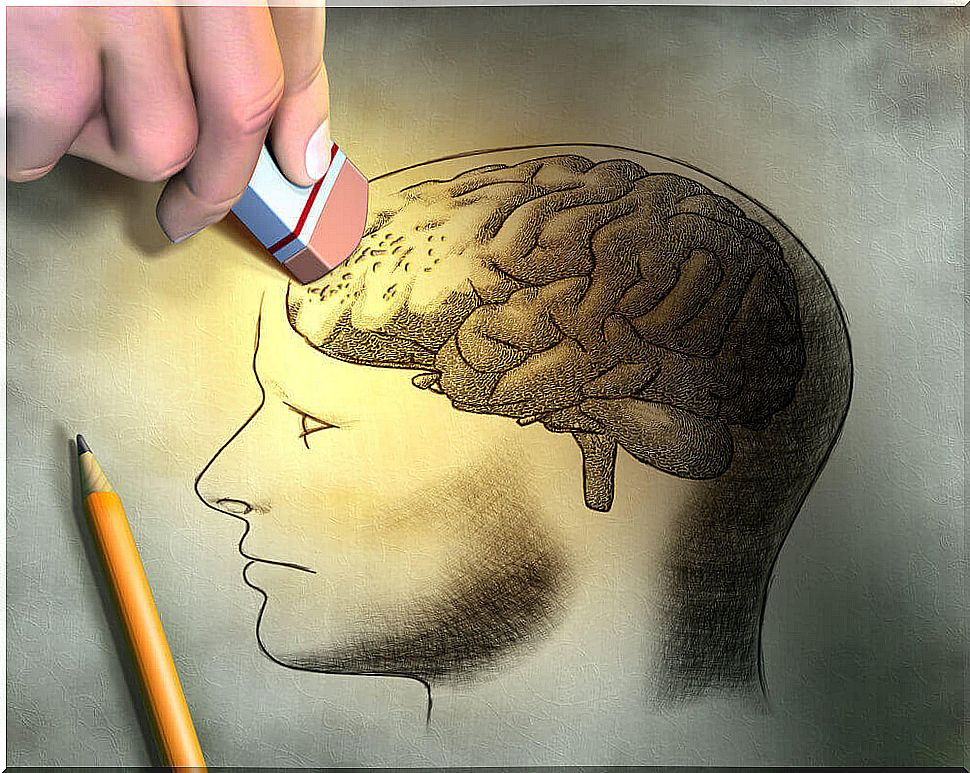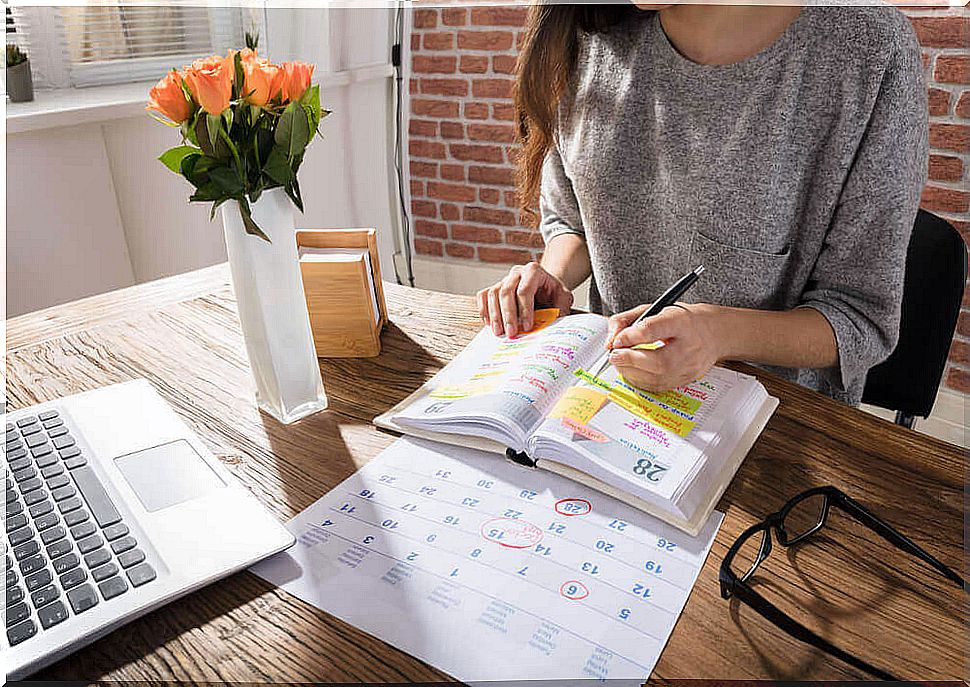Tips To Improve Your Short-term Memory

Do you often forget what you wanted to say? Do you sometimes forget why you went to the kitchen or what to buy in the supermarket? Have you ever missed an important appointment or activity? This has to do with how your short-term memory works.
It is possible that your brain is saturated with information and is resisting. But the good news is that you can improve your short-term memory with some habits and exercises. In this article we give you the necessary tips.
Tips to improve your short-term memory
There are two types of memory: short-term and long-term memory. The first we use to store instant information. Let’s give an example: it could be the name of someone you just met. But the content of short-term memory is limited.
Meanwhile, we use long-term memory for commands that require more concentration or effort. This could be, for example, an exam or something that we have to do every day.
Do you want to have a more efficient short-term memory? Then note the following tips.
1. Pay attention

First of all, you should only focus on one thing at a time. In recent years, the philosophy of multitasking has become quite popular. This theory suggests that we can do thousands of things at once. But this is not true.
We may be able to finish one task while working on another. Or we can even use one opportunity to finish another. But we are unable to pay attention to two or more things at the same time.
Why not? There will always be that one activity that “steals” your focus. In the end, you may not complete any activity successfully. Our brains work better when they focus only on what’s right in front of them.
2. Have fun with mental games
You can boost your short-term memory in countless ways. Because your brain can respond to stimuli and exercises in the same way that your muscles do.
When you learn something new, your brain can create new neural pathways. That way you make more connections (just like you do with a metro network, for example).
Since your mind can forge new paths, it is vital that you provide the material. This way, your brain can create pathways that connect all your thoughts.
How can you do this?
By playing memory games, puzzles and other similar types of games.
3. Use all your senses

You don’t just create memories by using what you see with your eyes. You certainly remember a smell from your childhood, such as grandma’s freshly baked bread or a song your mother used to sing when you were scared. Even as an adult you can use all your senses!
If you have trouble remembering people’s names, repeat them out loud several times. By doing this, your ears will also play a part in memorizing. For example, if you want to memorize a recipe, consciously taste the flavors by using your taste palette.
4. Reminders
This technique involves associating with words, images, or phrases that help improve short-term memory.
Rhyme can also be a huge help. For example, if you want to remember which months have thirty days, there is a mnemonic for this: “Thirty days have September, April, June, and November…”
You can also come up with your own tune or rhyme. Use personal information that you can easily remember, such as the first letters of the name of a family member or of people who are important to you. Use the combinations that are easiest for you to repeat.
5. Split things up and make a layout

When you need to remember a ten-digit phone number, it’s easy to forget it if you try to remember everything at once. But when you split it into two or three parts of three or four numbers, it will be easier to remember the number later. Repeat the sequence several times until it sticks in your mind.
Another technique that really helps is creating layouts. In primary school you probably had to create idea folders or underline the main ideas in a text. Now do the same with all the information you need to remember!
Concrete information and images are a great tool for our brains.
6. Eat better
There is without a doubt a connection between your daily diet and your brain activity.
A diet full of omega-3 fatty acids (found in foods such as salmon, walnuts and avocado) and vegetable proteins (fruits and vegetables) prevents premature aging and mental or cognitive disorders such as Alzheimer’s.
7. A good night’s sleep

Have you noticed that it is more difficult to remember something when the day is almost over? Or that you can’t remember something simple if you’ve only slept three or four hours? This is because your brain needs rest. Because that ensures that they can recharge, just like your muscles need it.
So you should have a healthy sleep routine: somewhere between seven and nine hours a night. Go to bed at the same time every day and get up at the same time. Take a small nap in the afternoon if possible. Do not watch television in bed and avoid overeating during the evening meal. Because this can make you sleepy.
8. Move
If you want to work on your short-term memory, a training plan is a good tool.
As you move, your heart pumps oxygen throughout your body. This “clean air” also reaches your brain. When that happens, you will be even better able to remember all the information you receive in a day. You can do cardio workouts (bicycle, treadmill, walk, etc.) to boost your brain functions.









